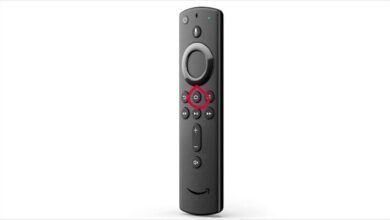CFDs vs futures in Germany

For German retail traders and investors, CFDs and futures are two different ways to trade securities. Futures trading is nearly unknown in Germany. In 2013 Deutsche Börse AG launched its first future, trading indices and equities.
Currency futures and contracts for difference (CFDs) are investment vehicles with similarities and differences. Knowing their features and pros and cons will help you choose the right one for your trading strategy.
What are futures in trading?
Trading is simple, but it takes work to make money. One needs to set up sound systems for his trades and follow them strictly. A trader can use futures as an investment tool for growing or stabilizing the company’s revenue stream. This is because trading with futures offers excellent opportunities in terms of cost savings, security, market predictability, liquidity, consumption flexibility and so on.
Futures are financial contracts between two parties to buy or sell an asset at a specific price, with delivery taking place at a predefined time in the future. The futures contract is negotiated at an exchange, acting as the intermediary between buyer and seller.
The word “futures” means “continuous”. This is because each futures contract carries on until its expiry date. On this date, the settlement price of the difference is made between the closing spot market prices of that day and the futures prices contracted by both parties. Futures also allow investors to invest money for short periods.
How would you do it if you had just $1,000 to put into investments? You could put your money into an account that pays you between 1-5% interest, or you could buy ten shares of AAPL. A third option is buying some commodity futures contracts.
The idea of futures contracts has been around for centuries, but they are not widely known outside the financial arena. The early versions of these contracts were over-the-counter instruments used by merchants to lock in prices for commodities like coffee, sugar and cotton. By agreeing on a price now with delivery at a predetermined time in the future, traders can fix their costs and make sure they turn a profit when they sell later.
Futures are very similar to an exchange-traded fund (ETF), where shares of that specific ETF are traded on a stock market – but with one distinct difference: When you buy a share of an ETF, you’re buying a regular stock in that company. In futures, delivery will never happen.
What are CFDs in trading?
CFDs are a form of financial product that is traded through a brokerage. It is essentially a contract between the trader and the brokerage house which states how much each side will pay to the other depending on whether or not an investment – such as a currency pair – rises or falls.
In effect, the CFD allows you to speculate without owning any of the underlying assets. This makes it appealing for those traders who want to make profits from rising prices and from falling prices, something they wouldn’t be able to do if they simply bought and sold shares in forex markets.
To begin with, you should think about what risk appetite you have as this sort of trading does tend towards being riskier than other forms of trading. It would be best to consider the time you are willing to devote to research and analysis as CFD trading is one of those forms of investing where it pays to watch what is going on daily.
As your initial investment will be significantly lower than that required for purchasing or owning an asset, CFDs can become very addictive once you start seeing good returns. As with any form of trading, however, it only takes a couple of bad trades to wipe out all previous profits, so never over-leverage yourself by borrowing more cash than you need.
Also, ensure that you always get a margin call right away when your losses start piling up; otherwise, they could quickly get out of control if left unattended. Regarding the best way to set up a portfolio of CFD trades, there is no right or wrong answer as everyone has different risk appetites and resources.
Some people prefer to have a lean, mean hedging machine that will take small profits on hundreds of trades, while others prefer to play prominent positions on a handful of major instruments. Either way, these are just a few points for you to mull over as you get started, so good luck and enjoy running your own trading business.
What do they have in common?
- Both CFDs and futures allow traders to speculate on foreign exchange rates, commodities, or indices without owning them.
- Both instruments involve leverage when traded.
- Both settle at the end of the contract cycle but not always on T + 3 settlement date.
- Finally, current tax laws place equal responsibility on buyers and sellers for gains derived from trading both futures and CFDs when it comes to taxation.
Main differences between CFDs and futures
You should take note of significant differences between the two financial instruments to ensure you select the right one for your investment strategy.
Futures are standardized contracts between two parties, where one agrees to buy or sell underlying assets at predetermined prices on set dates in the future. The difference between the spot price of the underlying asset and its future value allows traders to realize profits either way. If it goes up, they sell for more than what they paid; if it falls below their purchase price, they can still sell it at the contracted rate. Future instruments are settled with cash instead of delivery because all deals are closed before expiry based on the difference between the contract and the current market price.
The main difference between futures and CFDs is that while futures are traded on a regulated exchange, which guarantees the fulfilment of a transaction, you can trade futures contracts over-the-counter (OTC), where they are not standardised, and the settlement may not occur. They can be more expensive to execute than when executed on an exchange.
Contracts in the OTC market are also not guaranteed by an intermediary like exchanges. Moreover, with cash flow derivatives, investors don’t incur margin calls or cover daily position expenses. However, because taxation rules for gains on these financial instruments vary by country (see below), it is crucial to understand how they apply to your trading strategy before entering into any agreement.
Pros of using CFDs in your trading strategy
Cash flow derivatives, such as CFDs, are a popular trading instrument among private investors and professional traders. These financial instruments allow you to place bets on the movement of any foreign exchange pair or commodity with just enough capital to cover margin requirements – i.e., a margin account with your broker. In terms of taxation, gains derived from trading cash flow derivatives are considered capital gains rather than business income, which can be offset by losses carried over from previous years (see below for more information).
Some brokers offer both derivatives and CFDs
The benefit of this is that they will assume all the carrying costs until one side closes their position again, and it has to be carried – just like futures. It’s why some traders prefer contract-for-difference over traditional future contracts; German traders might prefer options rather than futures because of better regulation in Germany or because futures are not as widespread there.
Conclusion
Whether you go for a future or a CFD depends on your trading strategy and whether you want exposure to carrying costs. If you don’t mind those (or even benefit from them), then going for futures might be the better option; if you’re concerned about them, CFDs are your best alternative. If you are a new CFD trader Germany, we recommend contacting a reputable online broker from Saxo Bank to help you get started.




![Photo of How to Enable Edge Flags [5 Best Flags]](https://techstuff.website/wp-content/uploads/cover-1024x576-1-390x220.png)